

Feature
“Achieving the 17 SDGs through mass awareness with Music and Books” The Anthony Agada’s SDGs Story
ACHIEVING MASS PARTICIPATION IN THE 17 SDGs THROUGH MASS AWARENESS CREATION AND SCHOLARSHIP IN MUSIC AND BOOKS: the Anthony Agada Story on SDGs 1, 2, 3, 4, 5, 6, 7, 8, 9, 10, 11, 12, 13, 14, 15, 16 & 17.
It was the UNDP Administrator, Helen Clark who said inter alia, “Sustainable development in the 21st century is not something which happens to somebody else, somewhere else. We all have a stake in it. …”
This statement no doubt placed an obligation on all citizens of countries of the world to find any positive way at all to contribute to achieving these 17 goals.
Creating awareness on the 17 goals of the SDGs among the people is critical to achieving them by 2030.
This is because people can only participate and contribute widely to achieving them only when they are aware of them. But the question is how can they be aware of these goals unless they are told about them?
Consequently, as a song writer, singer and author, the Nigerian Benue-born Anthony Agada elected himself to create awareness and school teaching and learning resource on the 17 goals of the SDGs through two of his creative ingenious communication tools, Music and Book.
READ ALSO: Jeff Bezos commits $10 billion to fight climate change
(1) Music: Music is a universal language understood by all. Therefore, using music to share any message will no doubt be effective. To this end, as a development/social change singer, Anthony in his desire to create awareness on the SDGs among the people composed, wrote, sang and produced a song based on the 17 goals. The song vividly brought out the 17 goals by innovatively dividing them into two, serving as stanzas with goals 1 to 9 as stanza 1 and goals 10 to 17 as stanza 2. It also has Intro, Refrain, Chorus and Outro which all clearly emphasized that all peoples of the world as a community under the United Nations have conceived the 17 goals for inclusive global growth and development by the year 2030. It also made reference to the successes of the out-gone 8-points Millennium Development Goals (MDGs) 2000 – 2015 which are now being consolidated by the 17-points SDGs, thus connecting the immediate past with the present on our way into the future of inclusive global growth and development through inclusive global efforts. The song also calls on all peoples of the world to play their individual role to achieving the goals such that in the overall analysis, no one would have been left behind and the gaps of inequalities would have been closed largely in our world. The song which was released in 2018 is currently enjoying airplay and promotion.
Achieving universal mass mobilization on the SDGs for wider participation in their attainments will no doubt continue to require a song such as this as a useful tool on radios, at seminars/workshops; Summits and events of member countries’ governments, UN and relevant agencies, among others.
The song can be downloaded in Mp3 format HERE . You are free to share the link and/or download the song and share widely with your contacts, radios, etc.
READ ALSO: Pigba Kasa Community benefits from JCI Abuja Unity Health Outreach (photos)
(2) Book(s) : Anthony Agada’s attempt at creating awareness on the SDGs did not just start today. As a matter he started from the same year 2016 that SDGs started when he wrote and published two books inside which he promoted the 17 goals of the SDGs for his general interest readers and school teachers and students to be acquainted and take relevant responsibility.
The two books are presented below:
(a) “Poor Reading Culture Among Nigerians“: an expository discourse on issues arising and the way forward”.
In the book written as a paper and innovatively presented to Nigerians, Anthony Agada dedicated two pages precisely pages 105 and 106 to write out all the 17 goals of the SDGs and the out-gone 8 goals of the MDGs for readers to read, know and connect. As a matter of fact, in the preliminary page xvi, he predicted the content and subject of enquiry of the book within the context of a relevant goal of the SDGs which is goal 4: Quality Education (Ensure inclusive and quality education for all and promote lifelong learning). This is based on the generally held belief that we Nigerians don’t read book as we used to and/or ought to; yet book reading is an act of lifelong learning. He took his premise of argument in the book from the ex-President Goodluck Jonathan’s Administration’s Bring Back the Book Campaign (BBBC) initiative which he argued the “bring back…” suggests what used to be that no longer is and needs to be brought back. Given that the SDGs goal 4 partly seeks to promote lifelong learning and the book seeks to promote lifelong learning through book reading, the goal 4 is relevant to the book and the book is in harmony with goal 4.
The author further in pages 21 and 23 explained the implications of this lifelong learning of the SDGs on the Nigerian reading and non-reading population, bringing out examples of people who lost life-changing opportunities because they failed to practice lifelong learning and in particular through book reading. He captured some book reading promotion initiatives of both government and private sectors and particularly the one of the United Nations championed by the UNESCO annually under the aegis of World Book Capital (WBC) zeroing in on the edition won and hosted in Nigeria in 2014 tagged “Port Harcourt, World Book Capital 2014”. The WBC is a title bestowed to a city in recognition of the quality of its programmes to promote books and reading and the dedication of all players in the book industry. The designation runs from World Book and Copyright Day (April 23rd) of one year until April 23rd of the following year. To this end, Port Harcourt held this from 23rd April, 2014 to 23rd April, 2015 when it handed it over to the city of Incheon in South Korea the host of 2015. No doubt, readers have so much to learn from this book! This book has been reviewed, approved and recommended for schools’ libraries and general reading by the Benue State Ministry of Education, Science and Technology in 2017. As a matter of fact, the book is currently in use for teaching and learning in the Department of English Language at the Benue State University, Makurdi.
(b) Ada Obobi Yes
This is an indigenous languages communication promotion fiction. In short, it’s a novella with the story set in the background of Idoma language of the Idoma tribe of Benue State but with an appeal of relevance to all indigenous languages anywhere.
Anthony Agada in this fiction seeks to prevent indigenous languages from going into extinction. It is also in harmony with the goal 4 of the SDGs, Quality Education and he situated it within its context in preliminary page ix based on one of the targets of this SDGs, goal 4 which reads in part: “By 2030, ensure that all learners acquire the knowledge and skills needed to promote sustainable development, including among others,… global citizenship and appreciation of cultural diversity and of culture’s contribution to sustainable development.”
He believes that language is a cultural identity in cultural diversity. So as global citizens, we still have our diverse languages according to our tribes and we must promote them and importantly prevent them from going into extinction. We are different people speaking different languages in one global village/world. We are global citizens of diverse nations. This is exactly what this target of the SDGs goal 4 seeks to promote and this book is in harmony promoting same.
Anthony Agada also creatively captured in the book the UNESCO’s declaration of February 21st of every year as “International Mother Language Day” to promote linguistic and cultural diversity and multilingualism which is in harmony with the SDGs goal 4. The book, Ada Obobi Yes has also been reviewed, approved and recommended for general reading by the Benue State Ministry of Education, Science and Technology in 2017.
With his SDG titled song and the first book that captured the 17 goals of the SDGs generally and the two books that captured SDGs goals 4 particularly, Anthony Agada has been contributing to achieving the SDGs in the area of mass awareness creation and teaching-learning in schools for wider participation and contribution. His works continue to come handy usefully for mass awareness creation on radios, at seminars/workshops; schools, Summits and events of member countries’ governments, UN and relevant agencies, among others.
READ ALSO: #UN75: Global Dialogues with Youth Intensifies as DSG Amina Muhammed Engages Young People in Nigeria
Anthony Ochayi Ameh Agada’s educational background is in Mass Communication, holding a Bachelors Degree while currently pursuing a MSc degree. He is from Benue State and can be reached on
+234 8108897153
tonyagada@gmail.com
Feature
Ex-Oyo Governor Ladoja Installed as 44th Olubadan of Ibadan
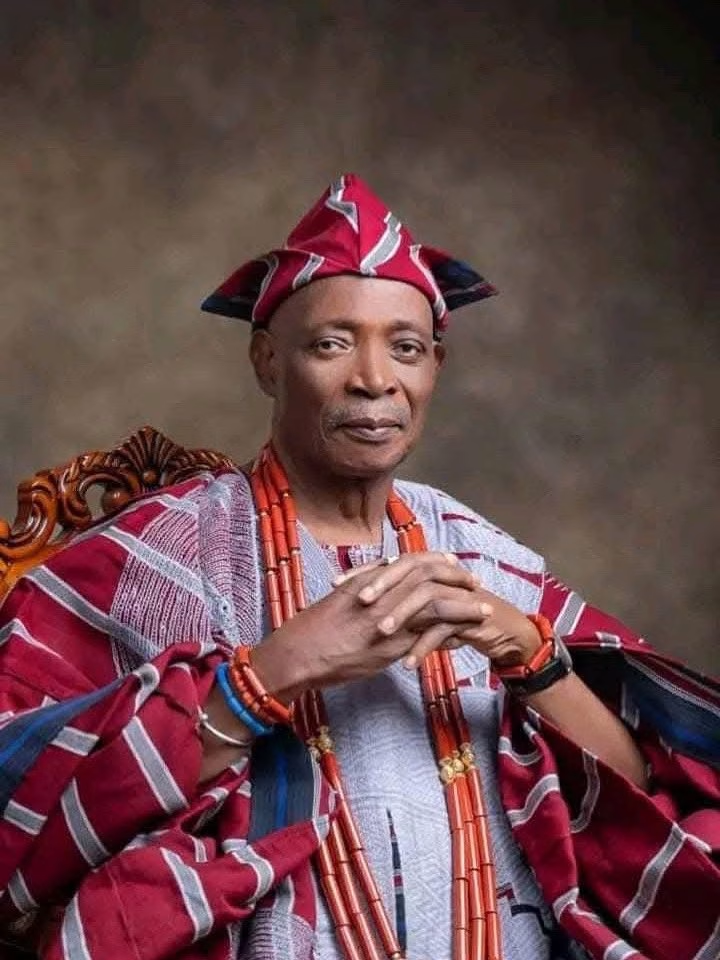
The odyssey of Senator Rashidi Adewolu Ladoja to the ancestral throne of Ibadan is not only historic but profoundly political, laced with trials and triumphs.
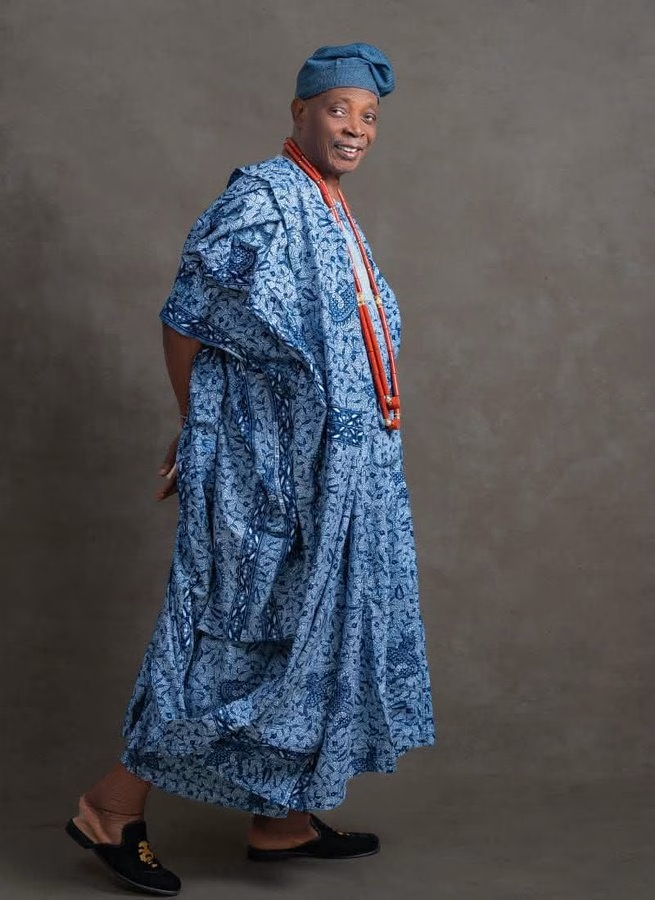
History often unfolds slowly, like a scroll revealing one line at a time. In Ibadan, a city steeped in tradition and resilience, history has once again taken a defining turn.
Oba Rashidi Adewolu Ladoja, former governor of Oyo State, businessman, politician, and activist, is now preparing to ascend the exalted throne as the 44th Olubadan of Ibadanland.
His decades-long journey, filled with trials, victories, and service, tells a compelling story of destiny, courage, and legacy. From political powerhouses to royal lineage, from boardrooms to the battlefields of democracy, Ladoja’s life blends tradition with transformation. His ascension is not only personal fulfilment but also a cultural and historical moment for Ibadanland.
Indeed, his coronation stands as a milestone, a testament to resilience, faith, and destiny fulfilled. On September 26, 2025, Oba Ladoja will be crowned the 44th Olubadan of Ibadanland, closing a circle that began 34 years ago when he became Mogaji of his family compound in Isale-Osi. But this is no ordinary coronation; it is the culmination of a saga defined by ambition, resistance, exile, betrayal, resilience, and ultimately, triumph.
Road to Royalty: From Mogaji to Monarch
It began in 1991 when Rashidi Ladoja became Mogaji (family head) of the Arusa compound in Isale Osi, a deeply rooted quarter in Ibadan South-West Local Government Area. That symbolic beginning marked the first step on Ibadan’s rigorous 36-step chieftaincy ladder, reserved for those destined to wear the revered crown.
The Ibadan succession system is unique among Yoruba kingdoms. Unlike other traditional stools where royal families are narrowed to specific lineages, the Olubadan system is remarkably open and transparent. Two lines of succession, the civil (Otun) and the military (Balogun), run concurrently, and candidates rise step by step until the next in line becomes Olubadan. It is an orderly system that rewards longevity, patience, and service, making the throne one of the most respected in Yorubaland.
On October 1, 1993, Ladoja was installed as Jagun Balogun Olubadan, formally entering the military line of succession. Over the next 31 years, he advanced steadily, surviving political turbulence, personal setbacks, and traditional disputes. Few endure the politically charged and physically demanding journey to the top, but Senator Ladoja did — with grit, patience, and determination.
“I never imagined destiny would call me to the throne at this time. It’s been one of patience, perseverance, and grace,” Oba Ladoja told a gathering at his Bodija residence after his official nomination.
Political Elite Meets Royal Heritage
In a city of warriors and statesmen, Oba Ladoja is the first former governor and senator to become Olubadan.
Trained as a chemical engineer in Belgium, he made his mark in oil, shipping, banking, agriculture, and transport before rising as a political force.
During the short-lived Third Republic, he was elected senator on the platform of the defunct Social Democratic Party (SDP). In 2003, he defeated incumbent Lam Adesina to become Governor of Oyo State on the platform of the Peoples Democratic Party (PDP).
Two years later, he was impeached in what many described as a conspiracy driven by then-President Olusegun Obasanjo and political strongman, Lamidi Adedibu. His reinstatement by the Supreme Court after 11 months in exile was more than a legal victory — it was a political resurrection. It cemented his reputation as “the indomitable warrior”, a man political opponents could not erase or ignore.
That resilience, combined with patient navigation of Ibadan’s chieftaincy system, has now borne fruit.
“It has been a bumpy journey filled with trials, but only made possible by the grace of God,” he told jubilant supporters.
Defiance and Reconciliation
Ladoja’s political career was often defined by principles that put him at odds with powerful figures.
In 2018, when then-Governor Abiola Ajimobi crowned Ibadan High Chiefs as kings, Ladoja stood alone in defiance. He rejected what he called a “carton-paper-made” beaded crown, declaring that the only crown worthy of him was the Olubadan’s. His refusal sparked years of political and legal confrontation.
“Why should I wear a crown not recognised by tradition?” he asked. “The throne is not for the desperate.”
Yet, in August 2024, in a radio interview, he softened his stance, saying unity was more important than pride: “The voice of the people is the voice of God. I am ready to accept the beaded crown if it will bring peace and allow me to serve the people of Ibadan.”
That statement shifted the atmosphere. His colleagues in the Olubadan-in-Council rallied behind him, and he was soon unanimously nominated and approved by Governor Seyi Makinde as the 44th Olubadan.
Unlike his clashes with Ajimobi, Ladoja’s relationship with Governor Makinde has been cordial and strategic. Makinde’s prompt approval of his nomination reflected a convergence of political and traditional power, a necessity in Oyo State where the Olubadan stool carries both cultural influence and political weight.
The Crown and the City
Ibadan is no ordinary city. It is the largest traditional Yoruba urban centre and the historic political capital of the old Western Region. The Olubadan, though largely symbolic, wields influence over millions.
For Oba Ladoja, this reign is not ceremonial. It is an opportunity to redefine the stool, blending cultural authority with political wisdom.
“I pray that my reign shall bring peace, prosperity, and progress to Ibadanland,” he said, calling for unity.
Expectations are high. From Oke Aremo to Abuja, all eyes are on him to redefine the modern monarch’s role not just custodian of rituals, but guardian of peace, diplomacy, and security. He has already urged coordinated efforts to secure Ibadan and Yorubaland amid rising insecurity.
The coronation of Oba Ladoja is more than a local event; it is a national stage. Expected guests include President Bola Tinubu, former Vice President Atiku Abubakar, Senator Rabiu Kwankwaso, former governors, business moguls, activists, and traditional rulers across Yorubaland and beyond.
Their presence underlines the symbolic place of Ibadan in Yoruba and Nigerian politics.
Activism, Sacrifice, and Legacy
Ladoja’s story is not just about royalty; it is about activism and identity. As a NADECO stalwart, he stood against military rule in the 1990s, supporting the pro-democracy struggle after the annulment of the June 12 election.
Chief Adeniyi Akintola (SAN) recalls: “We used his ships for NADECO’s activities after the Senate was dissolved. His businesses were seriously affected — he had a shipping line and the largest palm plantation in West Africa then.”
As governor, he challenged a sitting president. As High Chief, he resisted compromising tradition. As a businessman, he sacrificed fortune for democracy. Now, as Olubadan, he embodies the fusion of political power and cultural authority.
To former Nigerian Ambassador, Dr. Yemi Farounbi, “Ibadan is the intellectual capital of Nigeria. It provided security for the Yoruba in times of war. Peace must return, and the Olubadan must lead it.”
Professor Tunde Adeniran, a former minister, added: “He comes with experience and expansive networks. Expectations are high. We must rally around him.”
For younger Ibadan residents, his ascension represents continuity and hope. “We grew up hearing about his struggles as governor and his fight for justice,” said Akeem Alabi, a postgraduate student at the University of Ibadan. “Now he is our king. We expect him to stand for the people, just as he did in politics.”
The Crown After the Storm
For many, the crowning of Oba Rashidi Ladoja is poetic justice, a fitting epilogue to a life of battles in politics, business, and tradition.
From Mogaji in 1991 to Olubadan in 2025, from impeachment to reinstatement, from defiance to reconciliation, he now wears the crown not as a reward but as a responsibility.
The royal father is no longer just the “cat with nine lives”; he is the king whose destiny has come full circle.
Governor Seyi Makinde has expressed readiness to work seamlessly with Oba Ladoja towards the development of Ibadan city, describing the new monarch as an exemplary leader whose wealth of experience in politics, business, and community service will enrich the Olubadan stool.
Makinde recalled that his own political journey could not be written without Ladoja’s role, stressing that: “Baba remains a father figure whose guidance has shaped many of us. I hold him in high esteem, and I believe Ibadan and Oyo State will benefit from his reign as Olubadan.”
As Ibadan embraces this new chapter, the coronation of Oba Rashidi Adewolu Ladoja stands as both history and prophecy fulfilled a story of destiny, resilience, and triumph, written across the canvas of politics, tradition, and legacy.
CULLED FROM THE GUARDIAN
Feature
𝗜𝗻𝘁𝗹. 𝗗𝗮𝘆 𝗼𝗳 𝗣𝗲𝗮𝗰𝗲: 𝗛𝗼𝗻. 𝗢𝘁𝘂𝗼’𝘀 “𝗡𝗼 𝗗𝗶𝘀𝗰𝗿𝗶𝗺𝗶𝗻𝗮𝘁𝗶𝗼𝗻 𝗣𝗼𝗹𝗶𝗰𝘆” 𝗮 𝗣𝗮𝘁𝗵𝘄𝗮𝘆 𝘁𝗼 𝗣𝗲𝗮𝗰𝗲𝗳𝘂𝗹 𝗔𝗻𝗱𝗼𝗻𝗶
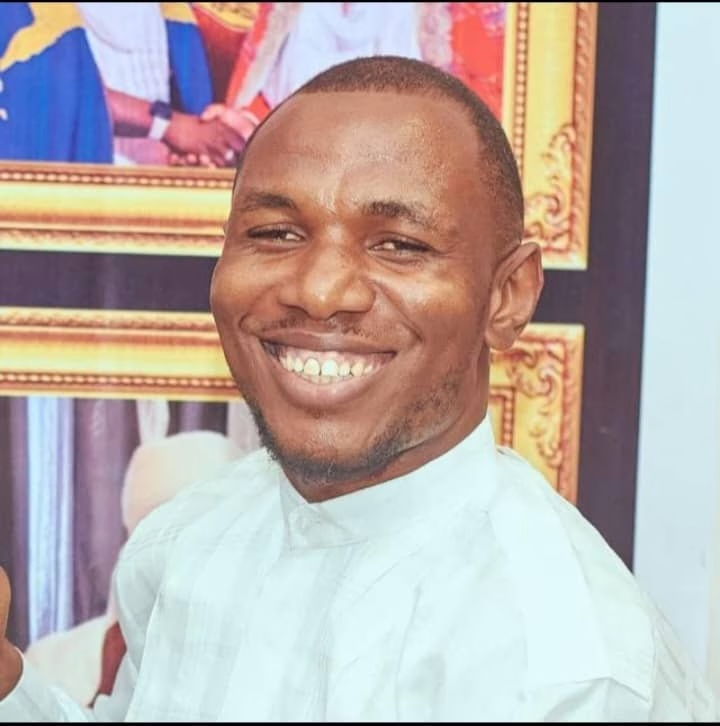
By Ima-owaji G. Shedrack
As the world commemorates the International Day of Peace, attention has once again shifted to the bold and inclusive policies of the Chairman of Andoni Local Government Area, Hon. Promise Lucky Otuo, whose leadership style has been described as a model for peacebuilding and sustainable development.
Since assuming office, Hon. Otuo has consistently emphasized that his government is a “no discrimination government,” a philosophy set to guide his policies and programs across the council.
In a remarkable demonstration of this principle, the Chairman extended empowerment opportunities not only to indigenes but also to non-indigenes residing and trading in Andoni. This inclusive approach, observers say, has deepened trust, fostered unity, and reduced the tensions that often arise from feelings of neglect or inequality.
Mr. Ima-owaji G. Shedrack, a stakeholder in the Renewed Hope family, applauded the initiative, noting that Hon. Otuo has shown that peace is not just about preventing conflict but also a conscious steps in building an environment where fairness and inclusiveness are at the center of governance.
“As Andoni joins the world to mark the International Day of Peace, Hon. Lucky Otuo’s leadership style that is anchored on ‘no discrimination’ is built to offer a clear roadmap, where peace is not only preached but practiced through deliberate policies of fairness and equal opportunity.”
Follow BONA NAIJA for more
Feature
Eid-ul-Mawlid: Uphold Hon. Lucky Otuo in your prayers, Ima-owaji Shedrack Urges non indigenes in ANOLGA

A stakeholder in Andoni Local Government Area of Rivers State, Ima-owaji Shedrack, has called on Muslim faithful in the area to remember the Chairman of Andoni LGA, Hon. Lucky Promise Otuo, in their prayers as they celebrate Eid-ul-Mawlid, the commemoration of the birth of Prophet Muhammad (SAW).
Speaking on Friday during the nationwide celebration, Ima-owaji stressed the importance of continuous prayers for leaders at all levels, describing Hon. Lucky Otuo’s administration as one that transcends sentiments, tribal lines, and religious differences.
“The government of Hon. Lucky Otuo is one beyond discrimination. Both indigenes and non-indigenes are carried along. This is why I urge our Muslim brothers and sisters to use this sacred celebration to pray for him and for the peace, progress, and prosperity of Andoni LGA,” Ima-owaji said.
He further noted that the Eid-ul-Mawlid celebration provides Muslims with another opportunity to renew their commitment to unity and inclusiveness, while also offering prayers for leaders who are steering the affairs of the people with sincerity.
Ima-owaji urged residents of Andoni, regardless of religion or origin, to embrace peace and support the development agenda of Hon. Otuo’s administration, which he said is focused on progress and inclusivity.
Follow BONA NAIJA for more
Feature
What to Know About CBN’s New Geo-Tagging Requirement for POS Terminals
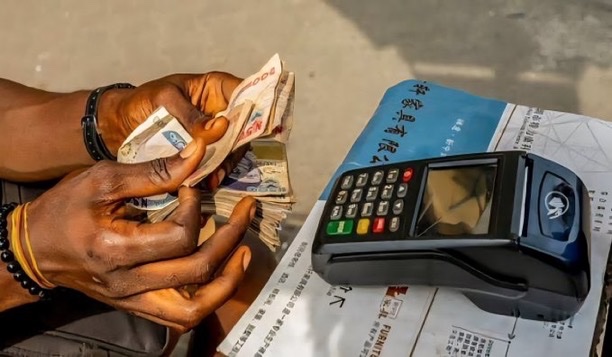
The Central Bank of Nigeria (CBN) has issued a new directive requiring all Point of Sale (POS) terminals to be geo-tagged within the next 60 days, a move designed to curb fraud, enhance oversight, and modernize Nigeria’s digital payment ecosystem.
According to a circular released on August 26, 2025, any terminal not geo-tagged will be deactivated from October 20, 2025.
“This initiative is designed to ensure that all PoS terminals are traceable and that transactions are secure. Terminals operating outside their registered location will be flagged, and non-compliant devices will be deactivated,” the CBN stated.
Here’s a breakdown of what the policy means for operators, agents, merchants, and customers.
What Geo-Tagging Means
Geo-tagging is the process of embedding location data, such as latitude and longitude, into a digital device.
For POS terminals, this means linking each machine to its exact physical address using GPS technology, creating a traceable digital footprint that makes every device verifiable and harder to misuse.
The CBN’s Key Requirements
- Geolocation Features
All POS devices must have GPS and dual-frequency receivers for accurate location tracking. - Real-Time Location Transmission
Terminals must capture and transmit their exact location at the start of every transaction. - Geofencing
Each POS terminal will be restricted to a 10-metre radius around its registered location. Transactions outside this zone will be flagged for investigation. - Registration
Licensed banks and fintechs—such as Moniepoint, OPay, PalmPay, and others—must register each device with exact merchant coordinates through a payment aggregator. - New Devices
No new terminal will be certified or activated without geo-tagging.
Why Geo-Tagging Matters
- Crackdown on Fraudulent Terminals
Geo-tagging eliminates “ghost” or cloned devices and reduces card fraud, unauthorized withdrawals, and misuse of mobile POS machines. It also disrupts ransom collections and terrorism financing through untraceable transactions. - Better Oversight and Transparency
Regulators gain real-time visibility of nationwide transactions, improving fraud detection and aiding financial inclusion strategies by identifying underserved areas. - Boosting Consumer Trust
Customers gain stronger protection knowing every POS is tied to a verified address, building confidence in digital payments.
Impact on Stakeholders
- Banks & Fintechs
Institutions face the challenge of upgrading thousands of terminals and registering them within 60 days, requiring both funding and logistics. - POS Agents & Merchants
Operators must work strictly within 10 metres of their registered business location, potentially disrupting mobile POS services that move around to serve customers. - Customers
Shoppers stand to benefit most, with safer and more transparent transactions in Nigeria’s payment system.
Conclusion
The CBN’s geo-tagging directive is one of the most sweeping reforms in Nigeria’s digital payments landscape. While it presents operational hurdles for banks, fintechs, and agents, it promises stronger security, fraud reduction, and renewed consumer trust in the long run.
Follow BONA NAIJA for more
Feature
Goodluck Nwaneri Pays Condolence Visit To The APC National Chairman
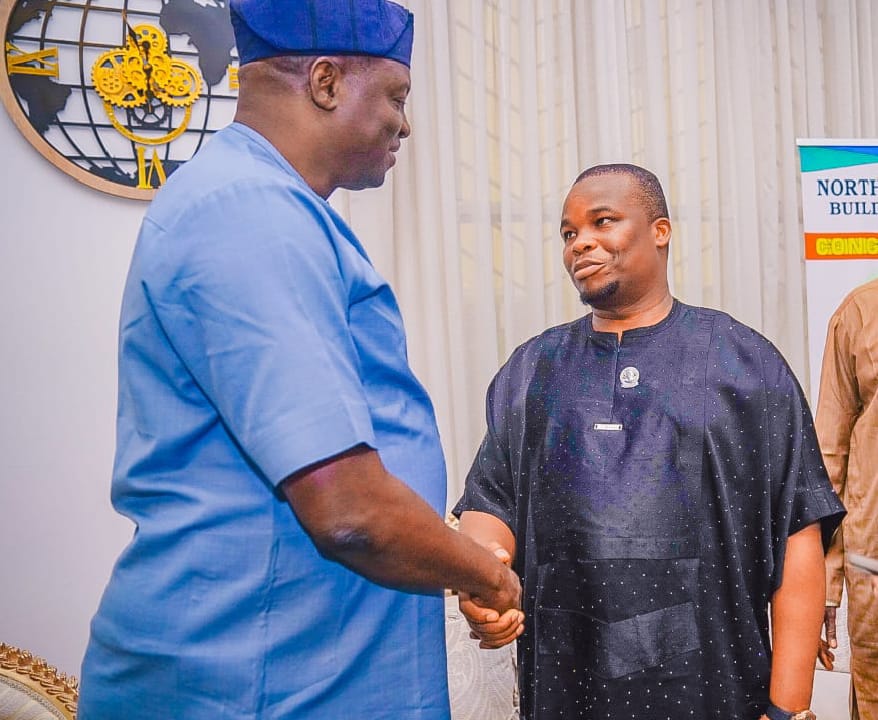
Chief Goodluck Nwaneri, a Director city boy movement, has paid a condolence visit to the APC National Chairman, Prof. Nentawe Yilwatda, at his residence in Abuja, following the passing of his beloved mother, late Mrs. Lydia Toma Yilwatda.
During the visit, Chief Nwaneri expressed his deep sympathy to Prof. Nentawe and the entire Yilwatda family, describing the death of a mother as a painful and irreplaceable loss. He noted that the late Mrs. Lydia Toma Yilwatda lived an exemplary life of faith, humility, and service, evident in the leadership qualities and values instilled in her children.
Chief Nwaneri prayed for the peaceful repose of her soul and asked God to grant the APC National Chairman and his family the strength and fortitude to bear the painful loss. He also encouraged them to find comfort in the enduring legacy their mother left behind.
He further reaffirmed his solidarity with Prof. Nentawe in this moment of grief, while urging the family to remain strong and united in honoring the life and memory of their departed matriarch.
-

 Entertainment2 weeks ago
Entertainment2 weeks agoBig Brother Naija Live Update: KOLA, SULTANA Evicted #BBNaija
-

 Music3 weeks ago
Music3 weeks agoOdumodublvck Drops “Industry Machine” Feauturing Wizkid Ahead of 23-Track Album
-

 Entertainment2 weeks ago
Entertainment2 weeks agoImisi Crowned Winner of Big Brother Naija Season 10
-

 Biafra3 weeks ago
Biafra3 weeks agoJudgement Day: Tension in Abuja as Court Rules on Nnamdi Kanu’s No-Case Submission Today
-

 Music News2 weeks ago
Music News2 weeks agoOdumodublvck Set to Drop ‘Industry Machine’ The Album Featuring Davido, Wizkid, Skepta & Stormzy
-

 Music3 weeks ago
Music3 weeks agoSarz Drops Debut Album Featuring Wizkid, Asake, Skillibeng
-

 Music3 weeks ago
Music3 weeks agoSpyro Releases Debut Album The Men, The Boys & Your Guy
-

 News2 weeks ago
News2 weeks agoFirst Lady, Oluremi Tinubu Celebrates World Teachers’ Day 2025
-

 Music News3 weeks ago
Music News3 weeks agoNigerian singer Peruzzi to release new single “Die It” at midnight
-

 Entertainment3 weeks ago
Entertainment3 weeks agoVIDEO: AYRA STARR & REMA SHUT DOWN GLOBAL CITIZEN FESTIVAL 2025































